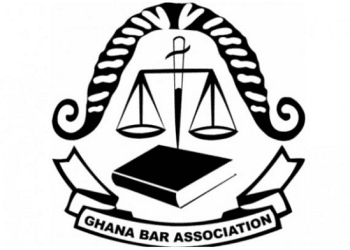The Supreme Court faces a landmark constitutional case that could fundamentally reshape Ghana’s legal profession as South Dayi Member of Parliament Rockson-Nelson Dafeamekpor, private legal practitioner Israel Tetteh, and the Ghana Law Society challenge the Ghana Bar Association’s (GBA) exclusive constitutional status.
The plaintiffs filed their constitutional suit this week, arguing that the GBA operates as a private voluntary association rather than a statutory body, despite wielding exclusive constitutional powers. The case targets the Attorney-General and the GBA directly, questioning decades of established legal practice in Ghana.
Central to their argument lies the interpretation of constitutional references to the “Ghana Bar Association” in multiple articles. The plaintiffs contend these references are descriptive rather than prescriptive, meaning the Constitution does not grant monopolistic powers to any single lawyers’ association.
The writ challenges the GBA’s role in nominating members to the Judicial Council and other statutory bodies, as outlined in Articles 153, 157, 201, 204, 166, 209, 259, 261, and 206 of the Constitution. According to the plaintiffs, these provisions cannot be interpreted to exclude other lawyer associations from equal constitutional recognition.
Dafeamekpor and his co-plaintiffs argue that the current interpretation violates fundamental constitutional principles, specifically Article 17 on equality and Article 21 on freedom of association. They claim the GBA’s monopolistic posture prevents rival associations from participating in national decision-making processes.
The case seeks sweeping relief from the Supreme Court, including a declaration that constitutional references to the Ghana Bar Association are descriptive rather than exclusive. The plaintiffs want the Court to rule that granting exclusive privileges to the current body violates constitutional principles by denying other lawyer associations equal recognition.
Additionally, they seek a restraining order preventing the GBA from presenting itself as the sole representative body of Ghana’s legal profession. The plaintiffs describe the association’s current posture as “wrongful appropriation of a constitutional identity” that misleads the public about the framers’ constitutional intentions.
The legal challenge extends beyond professional representation to fundamental questions about associational rights in Ghana’s democracy. The plaintiffs argue their suit serves both personal interests and the public good by vindicating constitutional supremacy and ensuring rule of law principles remain intact.
The GBA, established with roots in the Gold Coast Bar Association, has historically operated under the assumption that all admitted lawyers automatically become members. The organization drew up its first formal constitution and code of ethics in 1958, establishing precedents that the current lawsuit now challenges.
The constitutional challenge arrives amid broader discussions about professional associations’ roles in Ghana’s governance structure. The case raises questions about whether multiple lawyer associations can coexist with equal constitutional standing or whether the current system’s exclusivity serves legitimate organizational purposes.
If the Supreme Court rules against the GBA’s exclusive status, the decision could trigger significant changes in judicial appointment processes and representation on state bodies. Such a ruling might open opportunities for alternative lawyer associations to participate in constitutional roles previously reserved for the GBA.
Conversely, a ruling favoring the GBA would reinforce its position as the singular constitutional voice of Ghana’s legal profession. This outcome would validate decades of practice while potentially limiting the constitutional space for rival lawyer associations.
The Attorney-General and the GBA are expected to file their responses within coming weeks, setting the stage for arguments that will likely examine the historical context of constitutional provisions and the framers’ original intent regarding legal professional representation.
The case’s implications extend beyond the legal profession, touching fundamental questions about associational pluralism in Ghana’s constitutional democracy. The outcome could establish precedents for how constitutional references to specific organizations should be interpreted in future cases.
Legal experts anticipate the Supreme Court will carefully examine the distinction between constitutional recognition and constitutional exclusivity, potentially setting new standards for interpreting similar provisions throughout Ghana’s constitutional framework.
The lawsuit represents Dafeamekpor’s latest constitutional challenge, following his previous legal actions on various national issues. The South Dayi MP has established himself as a prominent figure in constitutional litigation, often pursuing cases he claims serve broader public interests.
As the legal profession and wider public await the Court’s decision, the case promises to definitively answer whether Ghana’s Constitution envisions a single dominant lawyer association or allows for competitive coexistence among multiple professional bodies representing the nation’s legal practitioners.
Source: newsghana.com.gh











